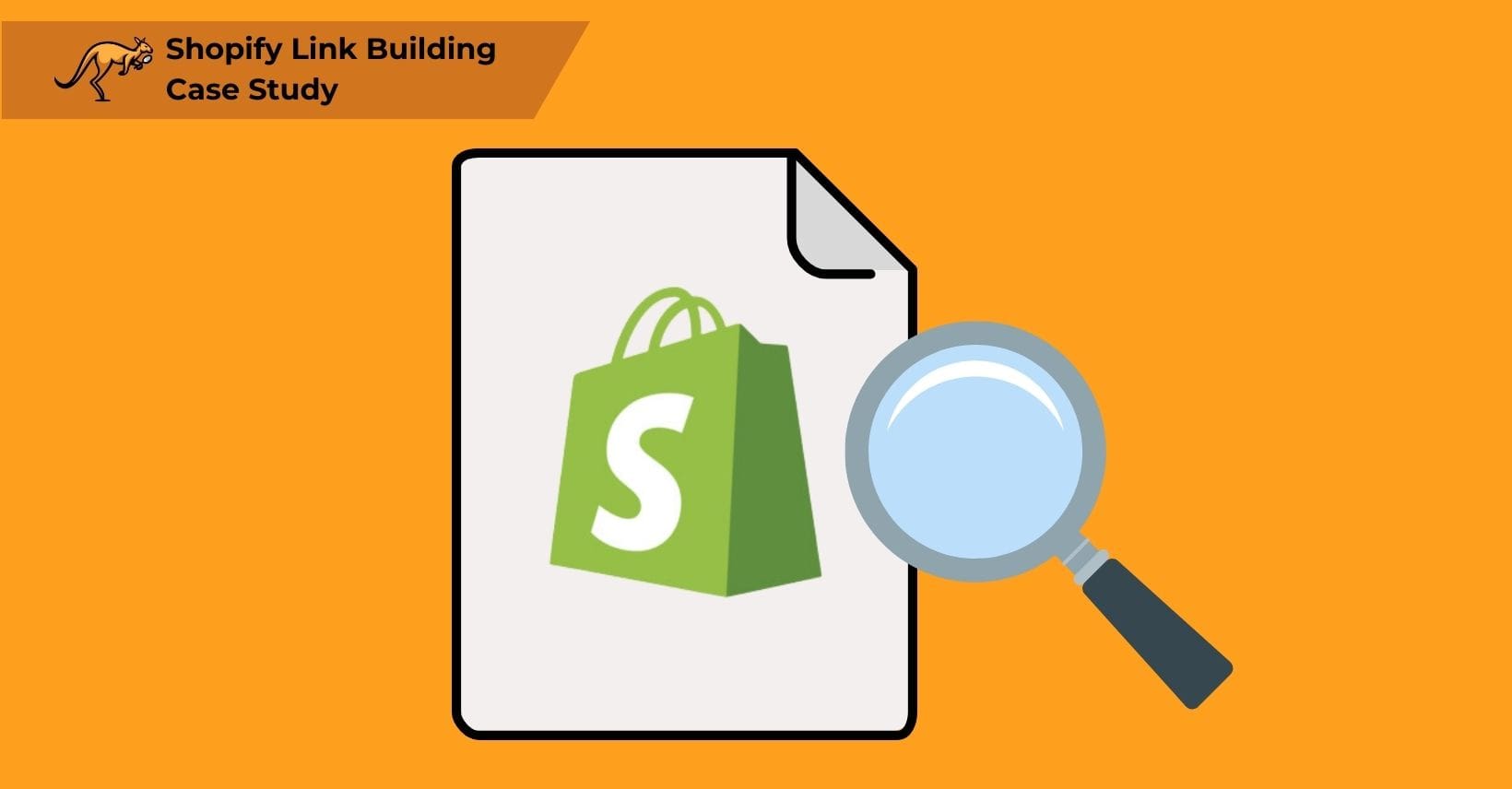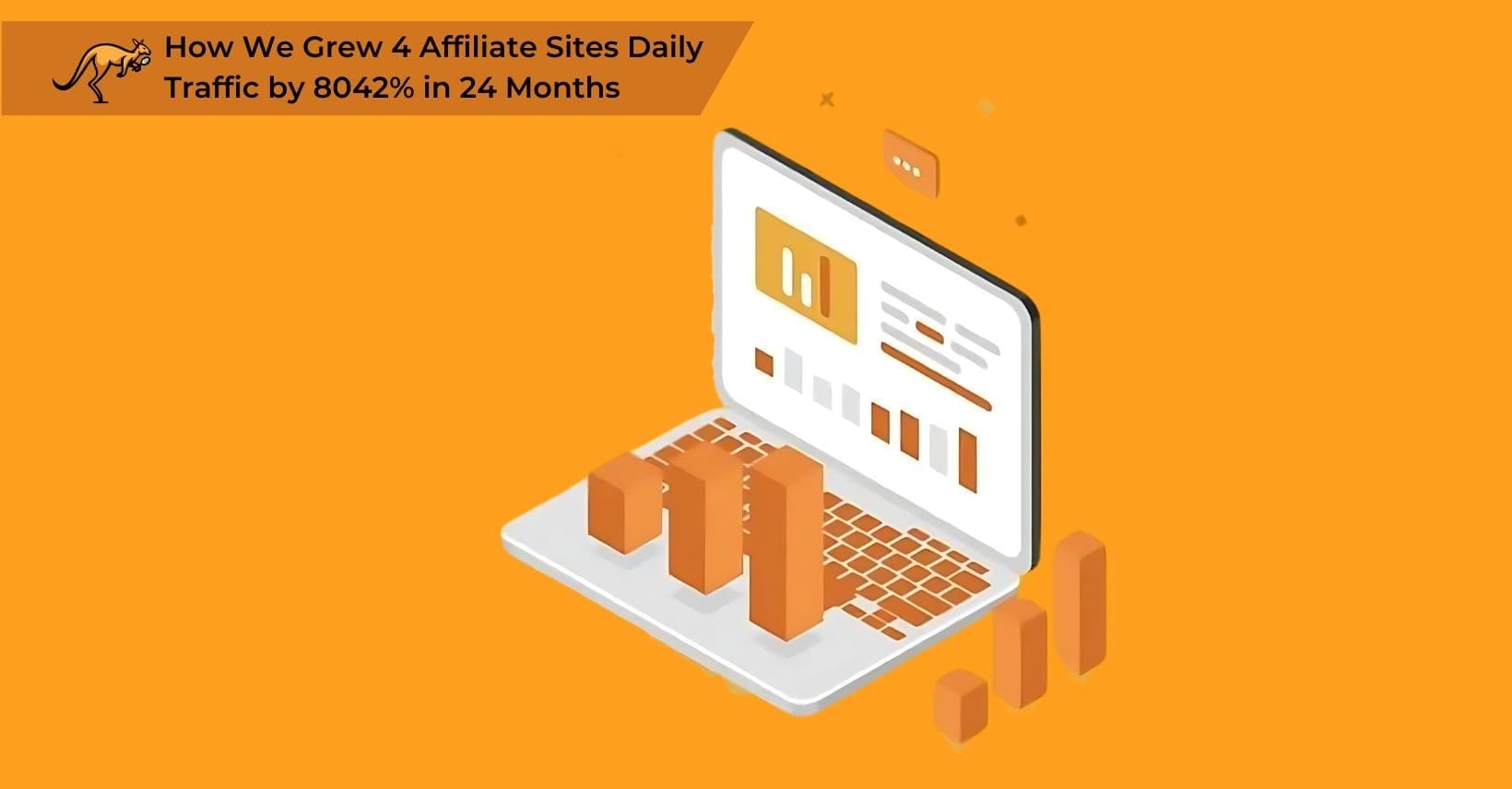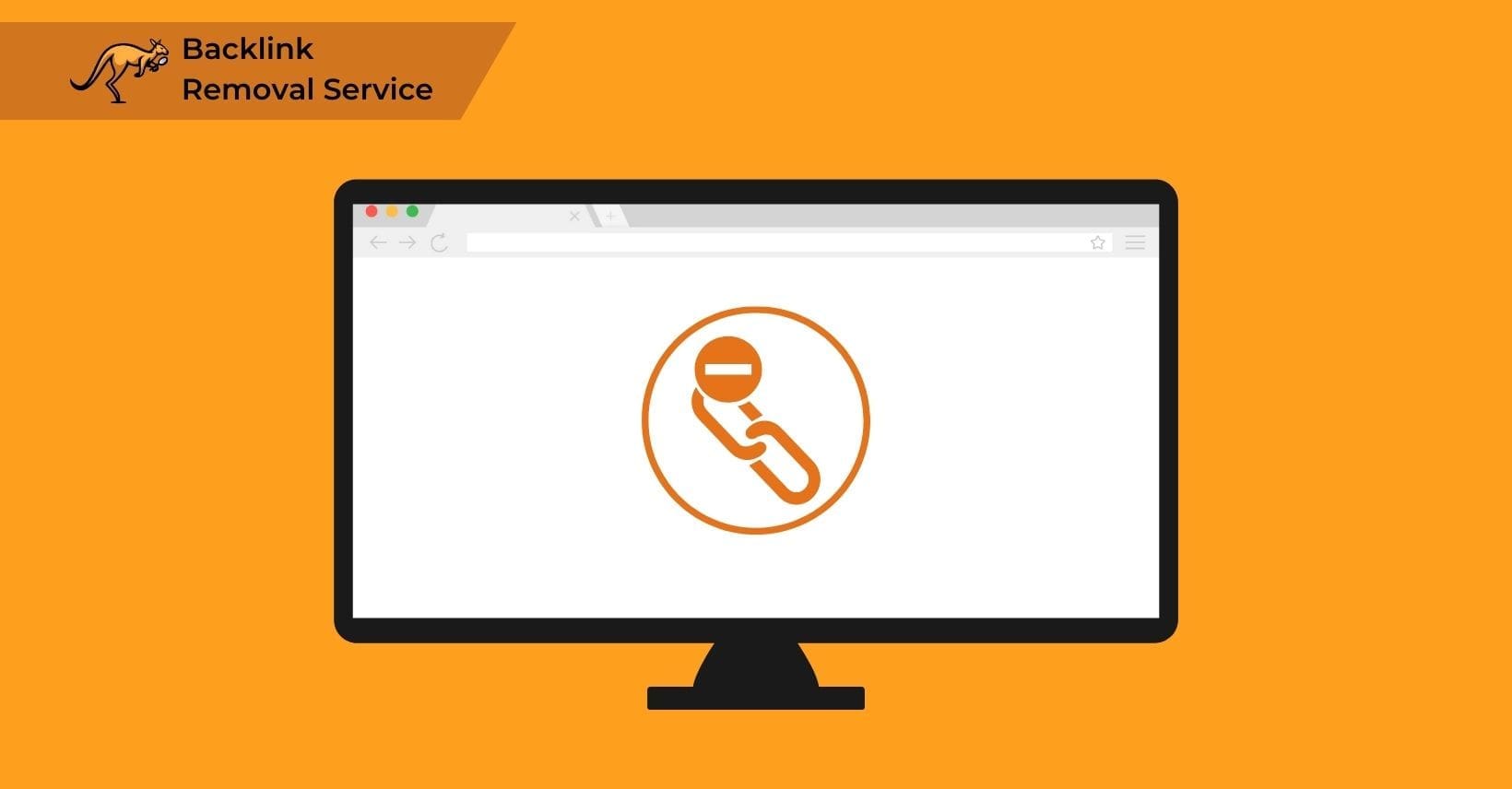Suppose you have an online store or consider adding this platform to your business. In that case, you are likely using Shopify.
A Shopify site must be optimized for search engines to get the right online attention. A Shopify site alone does not guarantee online success; you need organic traffic to attract interested customers. Without traffic, your Shopify store will not have customers and, therefore, will not generate revenue.
Like any other website, Shopify’s search engine optimization takes several forms. Link building is one of the most effective methods for optimizing Shopify stores for search engines. Developing a link-building strategy is crucial for generating organic traffic and increasing visibility.
This strategy can be applied to your online store by targeting search engine algorithms to enhance domain authority and achieve a higher ranking. A higher ranking means more people will see your store, click the link, and proceed through the sales funnel.
This Shopify link building case study shares proven strategies to increase your store’s organic traffic and generate more revenue through strategic backlinks, which transforms underperforming Shopify stores into high-converting e-commerce platforms.
What Is Link Building?
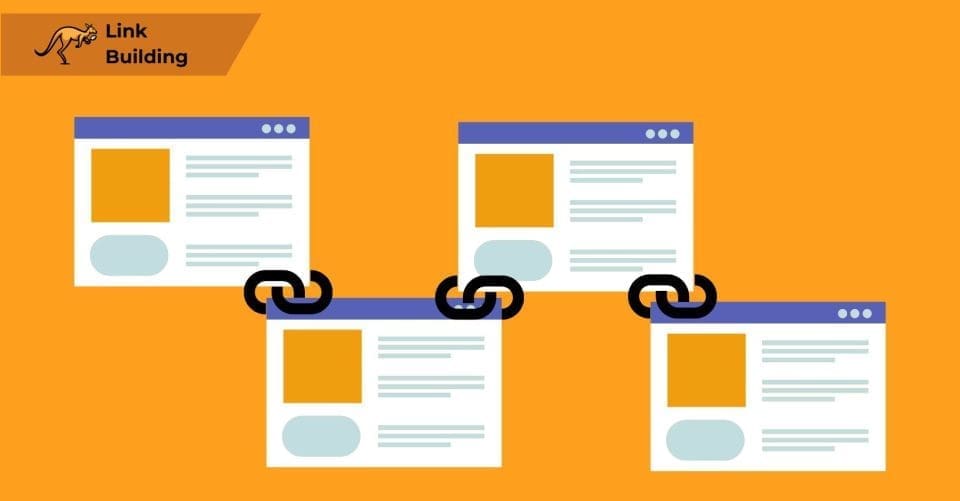
Link building involves developing strategies to enhance search engine rankings and increase web traffic. It’s essential for every website, including ecommerce stores, to focus on this to improve their visibility in search results. This is done by creating a link-building campaign that collaborates with high-domain authority websites to share link juice and audiences.
Your backlink profile, which comprises sites that link back to your Shopify site, demonstrates relevance and authority to search engines, aiding in ranking results. Top-ranking pages are those search engines consider the most relevant and reliable.
These pages receive the most traffic as users typically don’t look beyond the first few search results when seeking an online store, blog post, or service. Link building boosts your domain rating, enhancing your search engine ranking and driving more traffic to your online store.
Knowing how link building works can reveal its impact on improving your overall SEO efforts.
How Do Links Improve SEO?
Like standard site owners and content creators, link building should be a priority for ecommerce owners. Connecting with high-authority websites by acquiring backlinks is key. Backlinks, hyperlinks from one site to another, direct users to your content or store.
These links build trust and reliability, helping your site rank higher in search results. The more referring domains pointing to your site, the better it is for search engines like Google. Link building and other SEO tools can significantly boost store search traffic.
Focusing on generating high-quality links, such as mentions from well-known brands, is crucial. Link building aims to show authority and reliability, achievable through high-quality referring domains. Quality over quantity in link acquisition leads to better SERP rankings.
Now, let’s see how SEO strategies work specifically for Shopify stores.
How Does SEO Work For Shopify?
SEO boosts search traffic and revenue for all websites, but the process varies for ecommerce stores. Many online stores use Shopify, a leading ecommerce platform that enhances site reliability. Shopify’s recognition helps users understand your site, but it can impact link-building efforts. While the same SEO tools apply to Shopify and other websites, Shopify’s structure can influence the best SEO practices.
SEO and Google
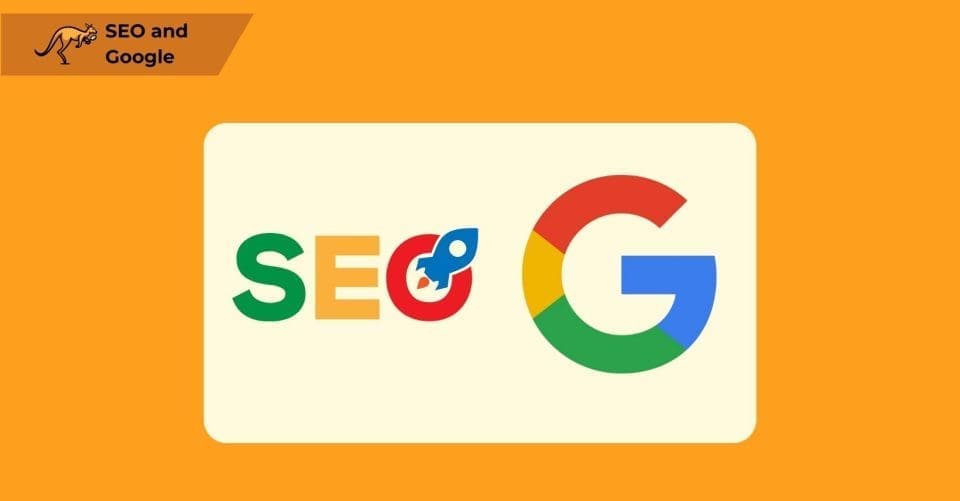
As a store owner, understanding how SEO works on Shopify is crucial before implementing tactics like link building, which might differ from other websites. SEO tailors your website to align with what Google and other search engines prefer, ensuring you rank high and catch users’ attention.
Website owners must grasp what Google looks for and how it affects their site’s link profile. Google aims to find the best content for users based on keyword relevance, domain authority, and reliability.
Your website’s management, link profile, and content marketing impact its ranking. Additionally, user interaction plays a significant role. The site must satisfy user intent from the first link, making it easy to navigate and informative.
Keeping users on your site, rather than having them click away quickly, is essential for better rankings. Users’ time on your site influences your position on search engine results pages (SERPs). Thus, the architecture of your store, including how it’s organized with resource and product pages, is vital.
Grasping Google’s criteria and organizing your Shopify site well simplifies the SEO process. With these fundamentals established, attention turns to fine-tuning SEO strategies specifically tailored for Shopify.
SEO On Shopify

Shopify’s architecture affects SEO performance through its unique structure of specific internal links and pages that directly influence your SERP ranking, where the organization of these predefined elements determines your site’s crawlability and indexability by search engines.
Shopify Architecture And On-Page SEO
Every Shopify store includes multiple pages that need proper organization for a seamless user experience and better recognition by Google. This structure sets Shopify sites apart, enabling them to effectively employ top SEO methods for improved rankings. Professional link builders understand Shopify’s organization and how it influences link-building strategies for optimal results.
While users can adjust their Shopify sites to include more or fewer pages, some standard types are present in all online stores. These include:
- Homepage
- Informational Pages (e.g., About Us, Contact)
- Collection or Category Pages
- Product Pages
- Blog Posts
Consider what users expect from your site to enhance SEO and user experience. As we delve deeper into optimization, we must examine how improving organization can significantly impact your SEO success.
Improving Organisation For SEO
As an online store, users often focus on your product pages first. Still, they might also want to learn about your business or contact your team for inquiries. This can vary depending on your site’s type and target audience.
By performing competitive research in your industry, you can discover what users value most and what gets the most clicks. No matter the findings, make sure users can navigate your website to get what they want within three clicks or less.
For example, frequently linking to your category page in outreach campaigns can be more effective than linking to your homepage.
These strategies are just the beginning. Some platforms can further enhance your site’s SEO in innovative ways.
How Shopify Can Help SEO
Time is money, especially online, where there is high competition. Users want a fast, simple experience, so your website needs to deliver quick results while keeping users engaged so that Google can recognize it. Striking a balance between SEO and user experience is crucial when organizing your website. Without proper organization, improving other SEO aspects and connecting with referring domains for better ranking becomes challenging.
Shopify simplifies behind-the-scenes optimization. Store owners don’t need to worry about site speed or the site explorer visitors use. Shopify is optimized for various explorers, eliminating the need for backend adjustments. However, focusing on site architecture is essential for better SEO results.
What Do Users Want?
Understanding your current setup is the first step to making improvements. Now that you have a clearer grasp of Shopify and your site’s structure, it’s time to explore additional SEO factors you can enhance.
How To Get More Links For Shopify Sites
Shopify stores can acquire quality backlinks through several effective methods including guest posting on industry blogs, creating shareable statistics pages, repairing broken links, converting unlinked brand mentions into backlinks, and conducting strategic keyword research to identify link-worthy content opportunities.
Many store owners struggle with link building because they don’t know where to get hyperlinks or how to use them on their site. However, it’s possible to generate links for your store using some of the same methods as any other website and some new techniques.
- Keyword Research
No SEO campaign will succeed without keyword research, which even applies to generating links.
After all, you want to ensure that your work is being shared in similar circles and reaching the same audience, so you will research relevant keywords first to find the right platforms to connect with.
With the right keywords, you can optimize all your content, ensure it gets noticed in the right searches, and find competitors and other resources to work with.
Researching keywords will yield key findings that can inform the rest of your content and highlight potential issues.
You can consider how competitor websites use keywords and which words get the most customer attention.
Keywords must be used consistently throughout your content, including any meta descriptions of images or products on your site, to ensure your website appears in relevant searches.
The same keywords should also be used in anchor text for backlinks to make it easier for customers to find your site in standard searches as well as from referrals.
- Guest Posting
Guest posting impacts Shopify SEO by establishing authoritative backlinks from relevant industry websites, where Shopify store owners create valuable content for other platforms that includes strategic backlinks to their store, resulting in improved domain authority, increased referral traffic, and enhanced visibility in search results.
This contributes to your link profile, which can increase your ranking on SERPs and offer referral traffic.
With such content, you will introduce yourself to a whole new audience and encourage them to visit your site.
Introducing Shopify Blog
Content creation is essential for any website, but Shopify store owners often find it challenging as their main focus is sales. Utilizing the Shopify Blog feature allows you to publish content regularly. This blog serves as a reference in guest posts and attracts links organically. While your customers may not prioritize the blog, it’s an excellent tool for generating hyperlinks without relying on paid ads. This approach can lead to more success through free links.
- Repair Broken Links
Broken links impact the user experience on your Shopify site and your ranking on SERPs.
This technique can help meet the balance needed on this platform for the best results, and you may be surprised by how many internal links were impacting your ranking by being broken.
Pages may be deleted, and content may be replaced to keep your content relevant and your website easy to navigate.
This can all lead to broken or damaged links that you may not even be aware of, which will continue to impact your ranking in the background.
Repairing damaged hyperlinks is a way to ensure that your current and past SEO efforts are not going to waste, and it should not be ignored.
How To Repair
Broken links on Shopify websites can be identified using SEO tools like Ahrefs that scan your entire site structure for 404 errors, after which store owners must redirect these broken links to the most relevant existing content through Shopify’s URL redirect feature or by updating internal links in your theme files.
For instance, redirect the broken links to similar categories if a product page has been renamed or moved. If a link pointed to “tees,” but you now use “t-shirts” or “tops,” make sure to update those links accordingly.
- Find Unlinked Mentions And Ask For Links
Suppose you have been working under the same domain for a while. In that case, other websites will likely have already referenced your company.
Many websites, such as blogs or article-based sites, may reference a particular brand without a backlink, and this is a missed opportunity for you to generate more traffic.
Do a search of your brand on Google or similar platforms to locate any unlinked mentions you may have generated over the years.
Once you find these mentions, contact the website owner or the author and ask for links to your content.
This is a standard request and something that can be easily rectified on their behalf, making it one of the easiest ways to generate links without additional content.
When you request links to be added to your references, offer an exact anchor text that the website owner or writer can use instead.
With this exact referencing, which links back to your homepage, it will be easier for people to find your website when they search for the same thing.
Finding Unlinked Mentions
Shopify store owners can leverage unlinked brand mentions for SEO by setting up Google alerts for their brand name and using tools like Mention or BrandWatch to identify references across the web, then contacting website owners with a friendly request to convert these mentions into backlinks with optimized anchor text pointing to relevant pages.
However, even doing this research for a few hours each week can make such a difference to your website’s success, so it should not be ignored.
- Consider Your Most-Used Links
Before generating any new links, consider what is already working for your site and whether these links can be reused elsewhere.
Of course, backlinks play a large part in your site’s domain rating on Google. Still, they can also be useful tools for attracting more potential customers.
Considering this properly may help reveal other areas where links are being used for your website and where more traffic can come from, contributing to your SERP ranking over time.
You can access your referral traffic using Google Analytics and see where people find your links and what type these are.
Through this, you may find that sponsored links, for example, are getting you the most clicks, and these need to be used more.
For an online store, you want to consider more than just the links that get you the most clicks; you also want to consider the links with the highest conversion percentage.
You want to increase traffic through links and ensure that these people are spending money on your site.
Using this information, you can find the best links to your website and ideas for other platforms to reach out to for guest posting, sponsors, and similar SEO methods.
- Create A Statistics Page
All Shopify sites have more than just a page for products; this architecture can be used to get links.
Statistics pages generate backlinks for Shopify sites by serving as linkable assets that journalists and bloggers naturally reference in their content, where Shopify store owners compile industry data and unique research findings into dedicated resource pages that become authoritative sources worthy of citation and backlinks from multiple websites.
The kind of statistics page you generate will vary based on your audience and store focus. Still, it should be relevant to your audience somehow.
By having a specific niche and using the best resources and findings possible, you can create a winning page that offers value to the people who need it most.
The Next Step
Once your page is uploaded to your website, you can start an outreach campaign to journalists and bloggers, offering your page a better resource than the ones they currently use. The swap makes sense if your page offers more value, leading to more backlinks and on-page connections to other resources.
This strategy pays off in more ways than one, as we will see shortly.
Final Thoughts on Optimizing Your Shopify Store
As an e-commerce site, how you develop your SEO strategy to ensure better rankings and increased internet traffic may vary from that of any other site.
How Shopify is organized, and Google’s requirements influence the best methods for optimizing your site on this platform.
This does not mean that your prior knowledge of SEO cannot be useful here, as some similar methods you may have used for other sites can also apply to Shopify.
When working on SEO for this kind of website, a new balance must be struck, and a different structure must be considered.
Generating links is perhaps one of the most effective ways to increase your Shopify site’s ranking on SERPs.
This is because not only does it impact the way Google sees your store in terms of relevancy and authority, but it can also work on generating more traffic.
With more traffic, your rankings will increase, but there are also more people to put through the sales funnel simultaneously.
